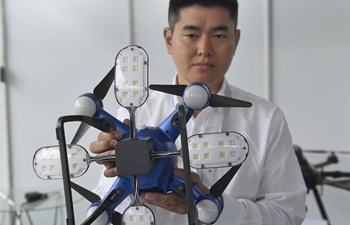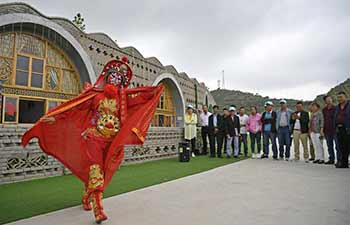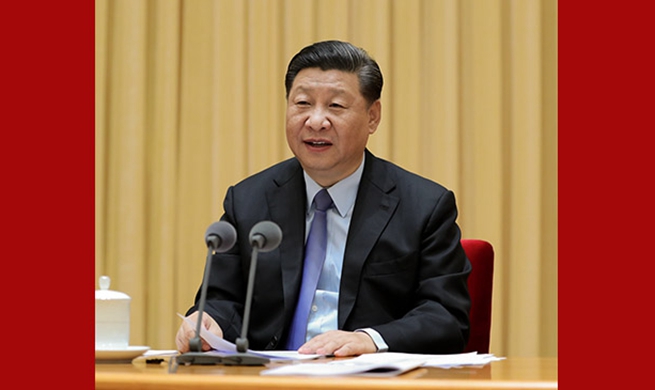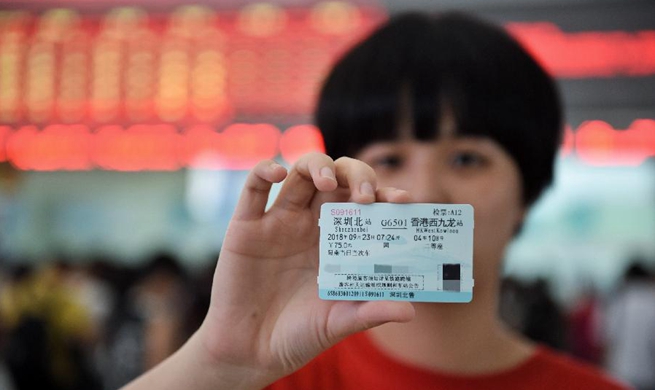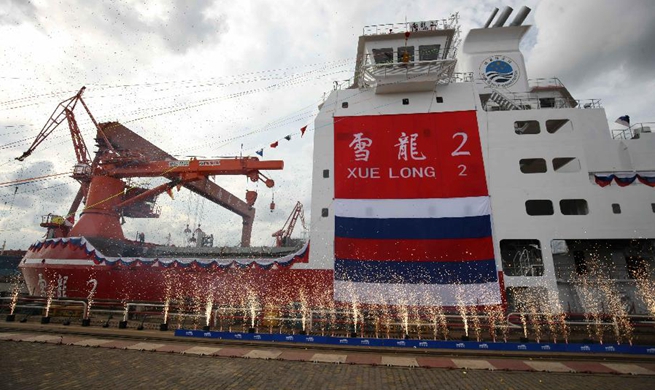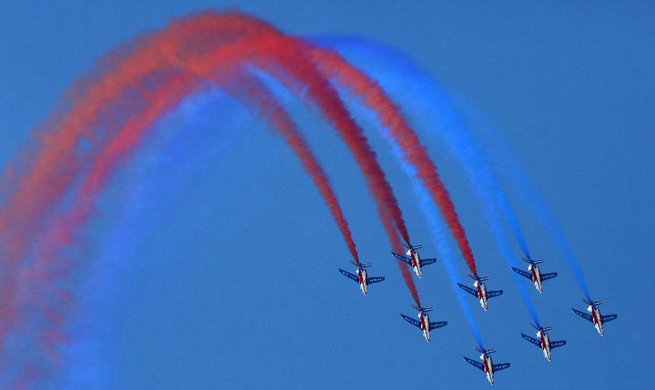BERLIN, Sept. 10 (Xinhua) -- German carmaker Volkswagen will stand trial in a new type of "dieselgate" class action lawsuit which opens at the Braunschweig Higher Regional Court on Monday.
The case centers on allegations by Volkswagen shareholders that the Wolfsburg-based carmaker failed to inform them of its involvement in emissions-cheating practices in adequate and timely fashion.
The so-called "template lawsuit", in which several plaintiffs unite to press charges collectively and resolve key questions to set a legal precedent, was only recently enabled by new legislation passed by the German government in response to the "dieselgate" scandal.
Speaking before the opening of the trial, plaintiffs and defendant both expressed confidence that their respective legal arguments would withstand the scrutiny of judicial authorities.
"We are not afraid of any of (Volkswagen's) arguments," said Andreas Tilp, the attorney of the Deka Investment group leading the "template lawsuit".
However, Tilp predicted that "no matter who wins", appeals of the verdict by the Braunschweig judge were likely to ultimately witness the trial being carried out before the Federal Supreme Court (Bundesgerichtshof).
Markus Pfueller, the attorney representing Volkswagen, insisted that his client had faithfully assumed all of its obligations as a publicly-listed company to inform shareholders about the developing "dieselgate" scandal. "We are convinced that this is the case," Pfueller said.
A key question of interest to the Braunschweig judges and wider public in the trial is from which point onwards Volkswagen managers became aware of illicit emissions-cheating practices and would have hence been legally obliged to issue a warning to shareholders.
Volkswagen has argued that there was no substantive evidence to justify such as step prior to the publication of accusations by U.S. environmental regulators in September 2015, whereas the plaintiffs claim that senior staff at the company knew in detail about the illegal practices as early as June 2008.
The Braunschweig State Prosecution Office currently lists 49 suspects in its investigations into emissions-cheating at German carmakers.
A small number of senior Volkswagen executives, including former Chief Executive Officer Winterkorn, his successor and current CEO Herbert Diess and board chairman Hans Dieter Poetsch are believed to have potentially committed "market manipulation" offenses under German laws governing the conduct of publicly-listed companies.
Speaking at Volkswagen's latest Annual General Meeting (AGM), Diess argued that long-term commercial success could only be secured with a corporate culture centered on "decency". As a consequence, the Dax-listed firm needed to become "more honest" and "more transparent" in the way it conducted business.

